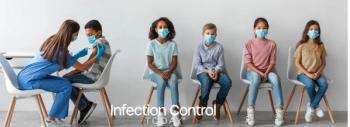
Some Patients May Never Fully Recover From COVID-19
Many patients in the study who did not require hospitalization experienced prolonged or persistent symptoms, nonetheless. In addition, the absence of underlying medical conditions does not automatically mean patients will not experiences these longer lasting symptoms.
As we work to approach infection prevention measures in a sustainable manner for coronavirus disease 2019 (COVID-19), part of this means understanding the long-term implications for patients. With guidance from the Centers for Disease Control and Prevention (CDC) updated to reflect a shorter duration of isolation and discouraging testing within 90 days of symptoms, things are constantly evolving. One big piece to this is how patients recover and if they’ll require continued care.
A
The authors asked a variety of questions—demographics, baseline chronic medical conditions, symptoms present at time of testing, resolution of symptoms, if they returned to their normal state of health, etc. The authors noted that “Among 292 respondents, 94% (274) reported experiencing one or more symptoms at the time of testing; 35% of these symptomatic respondents reported not having returned to their usual state of health by the date of the interview (median = 16 days from testing date), including 26% among those aged 18–34 years, 32% among those aged 35–49 years, and 47% among those aged ≥50 years. Among respondents reporting cough, fatigue, or shortness of breath at the time of testing, 43%, 35%, and 29%, respectively, continued to experience these symptoms at the time of the interview.”
These findings are incredibly meaningful in how we approach COVID-19 illness and the recovery process. That 1 in 5 adult patients who were previously healthy are still not back to their usual health within 2 to 3 weeks following the test is quite telling.
This not only means that those patients who did not require hospitalization experienced prolonged or persistent symptoms, but also that the absence of underlying medical conditions does not automatically mean patients will not experiences these longer lasting symptoms. These findings point to a need to establish better support and care for COVID-19 patients after their initial diagnosis. Moreover, how can we better educate patients on this? Ultimately, we will continue to learn new facets of COVID-19 illness and what it means for not only infection prevention measures, but also longer patient needs and how we can facilitate those through better education and perhaps outpatient clinics and appointments.
Newsletter
Stay prepared and protected with Infection Control Today's newsletter, delivering essential updates, best practices, and expert insights for infection preventionists.




